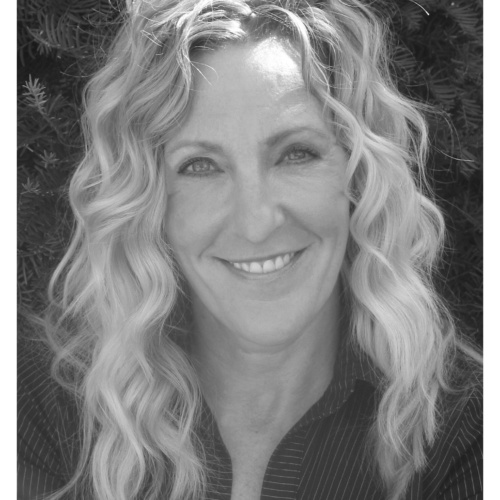Music Career Finder
Survey Start
Music Publisher

How To Become a Music Publisher
- Music publishers manage the rights, royalties, and distribution of songs written by songwriters they’ve signed
- A music publisher signs songwriters and pays them an advance (lump sum of money)
- Music publishers make money when their songwriters’ songs are streamed, downloaded, aired on the radio, played in a public place, or used in visual media
- One of the best ways to start your career is to intern at a music publishing company
- A music publisher’s working hours are usually normal (i.e. 9-to-5)
- The average income for a music publisher is about $65,930 per year and often ranges from $57,786 to $75,956 per year
- Career Description
- Salary
- Career Outlook
- Career Path
- Experience & Skills
- Education & Training
- Additional Resources
- Sources
- References
Career Description
A music publisher manages the rights and distribution of musical works, meaning they register songs, collect royalties, and distribute royalties to the song owners.
What Does a Music Publisher Do?
The responsibilities of a music publisher include:
- Signing songwriters to the publishing company
- Helping songwriters pick their strongest songs for recording
- Registering songs with copyright and royalty collection organizations
- Collecting and distributing royalties to songwriters
- Licensing songs for use in in films, television, commercials, and other media
- Pitching songs to recording artists, film producers, and other industry professionals
- Facilitating collaborations between/among songwriters
- Contract negotiation with songwriters, artists, and management third-party clients
Ree Guyer Buchanan, Music Publisher and President/Co-owner of Wrensong/Reynsong, has a catalog that includes songs recorded by artists like Blake Shelton, Miranda Lambert, Dierks Bentley, Toby Keith, and Carrie Underwood.
She said she signs songwriters for X amount of years, gives them an advance, and hopes they make money for her company.
“They write songs every day and turn in work tapes at the end of the day (guitar and vocals for what they wrote that day),” she said.
“After a month or so, we’ll sit down and go through those songs and find the four or five we need to demo and make sure that it sounds like some major artist.”
A Day In the Life of a Music Publisher
Buchanan’s typical hours are about 9:30 a.m. to 6 p.m., and then she attends songwriter showcases in the evening during the week.
“It is long hours in that you do always have to be at events,” she said. “Showcases happen at six at night so you might still be home at seven. It’s very flexible.”
A typical day for a music publisher also involves:
- Researching songwriters to sign
- Connecting songwriters with each other for co-writes
- Doing administrative paperwork
- Meeting with music industry people
- Listening to songs from the songwriters on the roster.
“My job is to make sure we’re picking the best songs [our songwriters are] writing,” Buchanan said. “I take the demos and go play them for Producers who are producing records for any number of artists. We’re called Song Pluggers.”
She said she spends her days trying to get her company’s songs on artists’ records.
She plays them for A&R people, Managers, Licensing Representatives, Artist Relations Representatives, and directly to the artist.
Salary
On average, Music Publishers earn approximately $65,930 per year, most of them earning somewhere between $57,786 and $75,956 per year1.
Earnings for a Music Publisher can vary wildly, depending on the size of the publishing company and the caliber of its songwriters.
A small, independent Publisher will obviously not be bringing in the amount of cash that an established corporation will.
How Do Music Publishers Make Money?
Here are the main ways a music publisher makes money off of their songwriters’ songs:
- Digital downloads
- Streams
- Radio airplay
- Songs used in visual media (TV show, ad, movie, video game, etc.)
- Plays in public contexts (like in a venue, grocery store, bar, etc.)
Buchanan said when money comes in, she first recoups the advance she paid the songwriter. Once she recoups that money, she splits any future proceeds with the songwriter 50/50.
And if there are multiple songwriters on a song, it’s split between the publisher and the songwriters. Sometimes, there can be multiple publishers because the other songwriters are signed with other publishing companies, in which case the money is split even further.
Hey, what do you think about trying our new Music Career HelperMusic Career Helper really quick? It’s totally free and could help get your career moving fast! Give it a try. It’s totally free and you have nothing to lose.
Career Outlook
Although Music Publishers typically hold regular office hours, they also spend some time in the evenings (and sometimes weekends) checking out songwriters and artists to see if they can build a working relationship with them.
“I’m usually not working on the weekend, but definitely during the week, I’m going to [songwriter] showcases,” Buchanan said.
“Labels will have showcases for a new act they’re trying to sign and you’ll go out to see what you want to pitch to them, what kinds of songs you want to get them. It’s a lot of nighttime events during the week.”
Professional songwriters have noted that publishing advances are not as big as they used to be, and this is because there’s not as much money in publishing as there used to be.
Radio airplay is becoming less important. Streaming payouts are small. It’s becoming more common for there to be so many collaborators on a song that each person’s payout is diminished.
You can still make a living as a music publisher, but you have to be able to adapt to the always quickly changing music industry landscape.
Career Path
As you consider pursuing a career as a music publisher, here are the most common career paths to get there…
Songwriter to Music Publisher
Many times, songwriters start their own publishing company so they can manage their own publishing and keep more of their profits.
This can lead to bringing other songwriters under their publishing company. From there, they find themselves being both a songwriter and music publisher.
Intern
Interning at a publishing company can be a great way to get your foot in the door. From intern, you can move your way up to music publisher. Many times, you can find an internship through music school.
Start a Music Publishing Company
Some non-songwriters choose to start their own publishing company. To do this, you’ll need to have an entrepreneurial spirit and a strong business and marketing mindset.
Experience & Skills
Here are the skills you’ll need to develop if you want to become a music publisher…
Passion for Music
It may seem obvious, but it’s worth noting that Buchanan said you must be passionate about music, and specifically about the genre in which you work.
Understanding What Makes a Hit Song
Developing your intuition for songs that people will love (i.e. songs that will be successful) will take time. But it is a skill you must work on.
“Music publishing is where the songs start and if you don’t know what a hit song is you’re not going to do well,” Buchanan said.
“It’s a very instinctual thing. I’ve always known by intuition what was a hit and what wasn’t. I get butterflies in my stomach, kind of. It’s a feeling.”
Strong Business Mentality
You must be business-minded to work as a music publisher.
And this includes knowing how to negotiate, managing budgets, overseeing projects, coordinating people, and being familiar with copyright law.
“What I do is very much of a sales job,” Buchanan said. “I’m a salesperson. I’m trying to convince people to cut the songs; it’s a lot easier when you’ve got a great song.”
Networking Abilities
Your day-to-day work as a music publisher involves building relationships with people — with your songwriters, artists, managers, producers, and anyone else who you can partner with.
“In general, this is a very social business,” Buchanan said. “You have to want to be social. I’m out doing an event probably three nights a week. It’s something I really have to be doing.”
Education & Training
You don’t need a college degree to become a music publisher, but it can be a good launching point.
Ultimately, getting an internship is one of the best ways to get started, whether that’s after college or in lieu of it.
Music Publisher Degree
Attending a Music Business degree program will give you the academic knowledge you need to understand how the industry works.
Plus, these programs provide internship and networking opportunities that can set students up to find jobs right out of college.
“The music business is a very ‘who you know’ business,” Buchanan said. “Most businesses are that way.”
She recommends checking out the music business programs at Berklee, Middle Tennessee State University, and Vanderbilt.
Additional Resources
Music Publishers belong to a performing rights organization (PRO), which could be:
- ASCAP (American Society of Composers, Authors, and Publishers)
- BMI (Broadcast Music, Inc.)
- MPA (Music Publishers Association)
- SESAC (the Society of European Stage Authors and Composers)
They may also be members of trade organizations AIMP (Association of Independent Music Publishers) and NMPA (National Music Publishers Association).
Sources

Ree Guyer Buchanan
Ree Guyer Buchanan is the President/Co-owner of Wrensong/Reynsong, one of the top independent music publishing companies on Nashville’s Music Row. Her first big success came with the track “Little Things,” which became a #1 single for the Oak Ridge Boys. Since that time, Wrensong has continued to be a leader in the music industry, with tracks recorded by Blake Shelton, Miranda Lambert, Dierks Bentley, Toby Keith, Dwight Yoakam, The Band Perry, Kenny Chesney, Jason Aldean, and Carrie Underwood.
Ree Guyer Buchanan has been featured in Music Row, Billboard, and the book Make Me a Star: Industry Insiders Reveal How to Make It in Music.
Her company, Wrensong, is a member of the Music Publishers Association. Ree has also served as the Treasurer for the Association of Independent Music Publishers.
References
- 1Multiple. "Music Publisher Salary in the United States". salary. published: Oct 1, 2024. retrieved on: Oct 31, 2024





